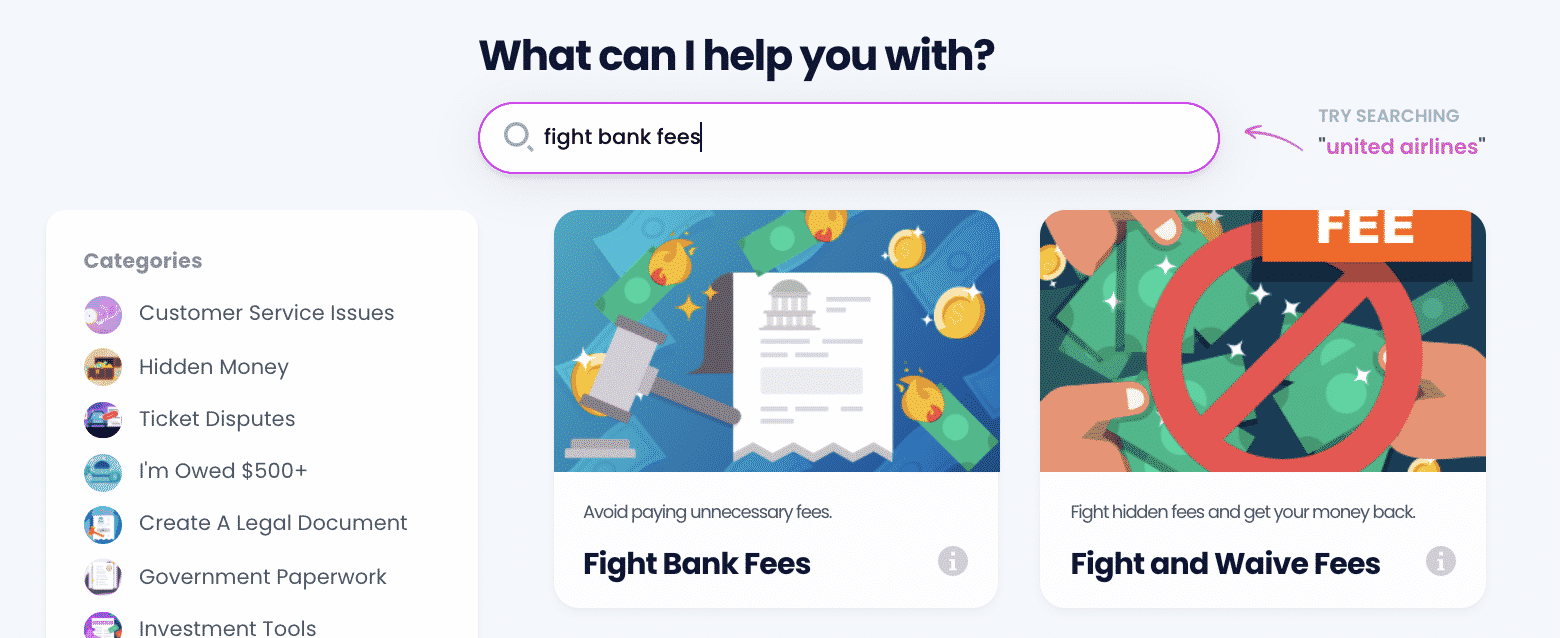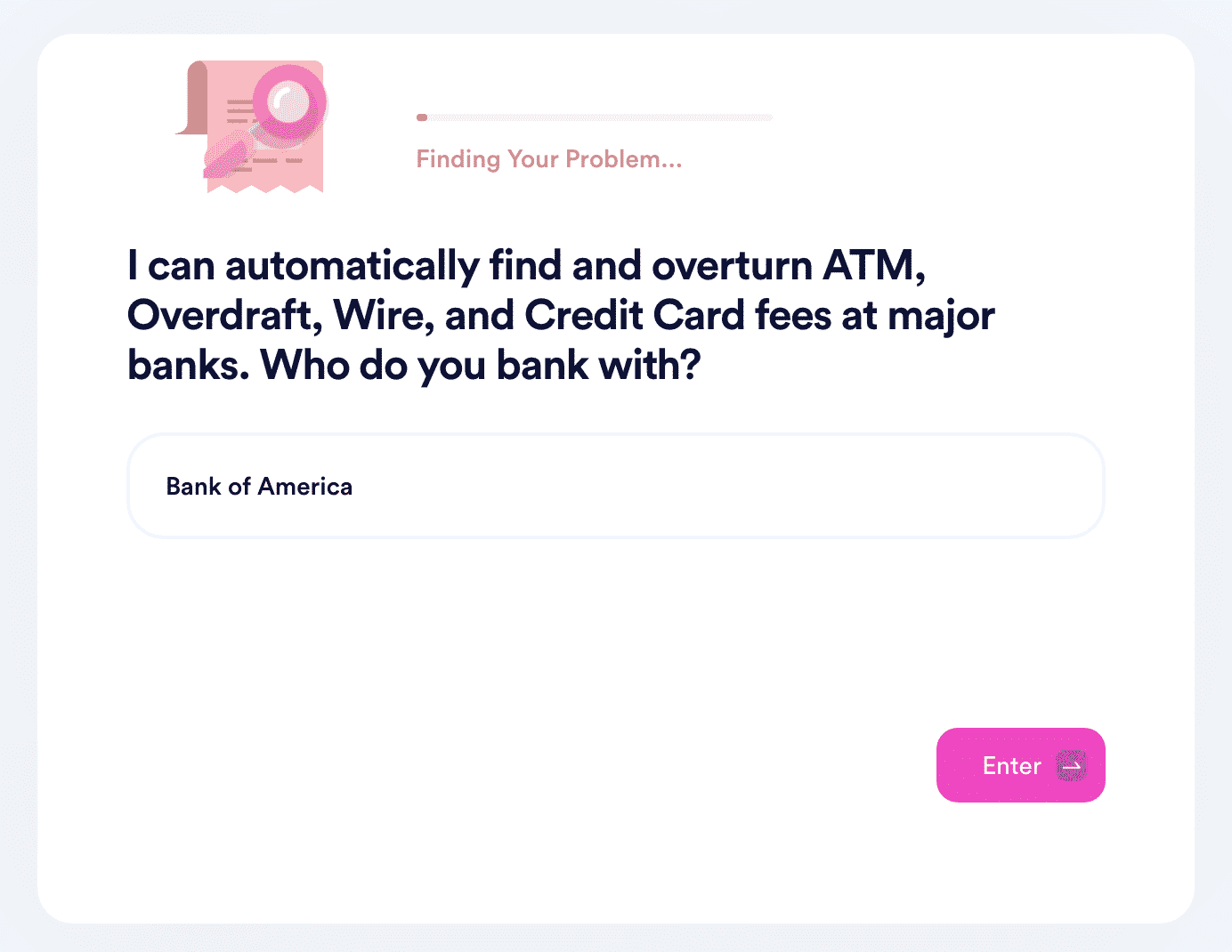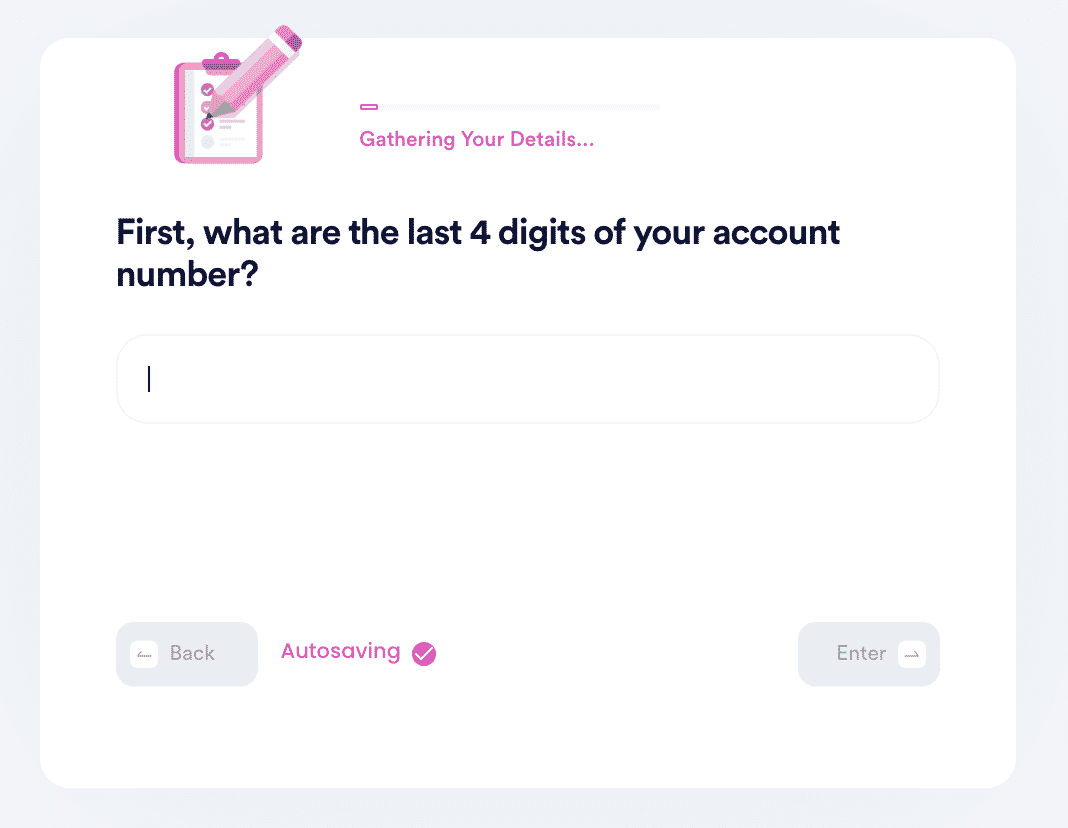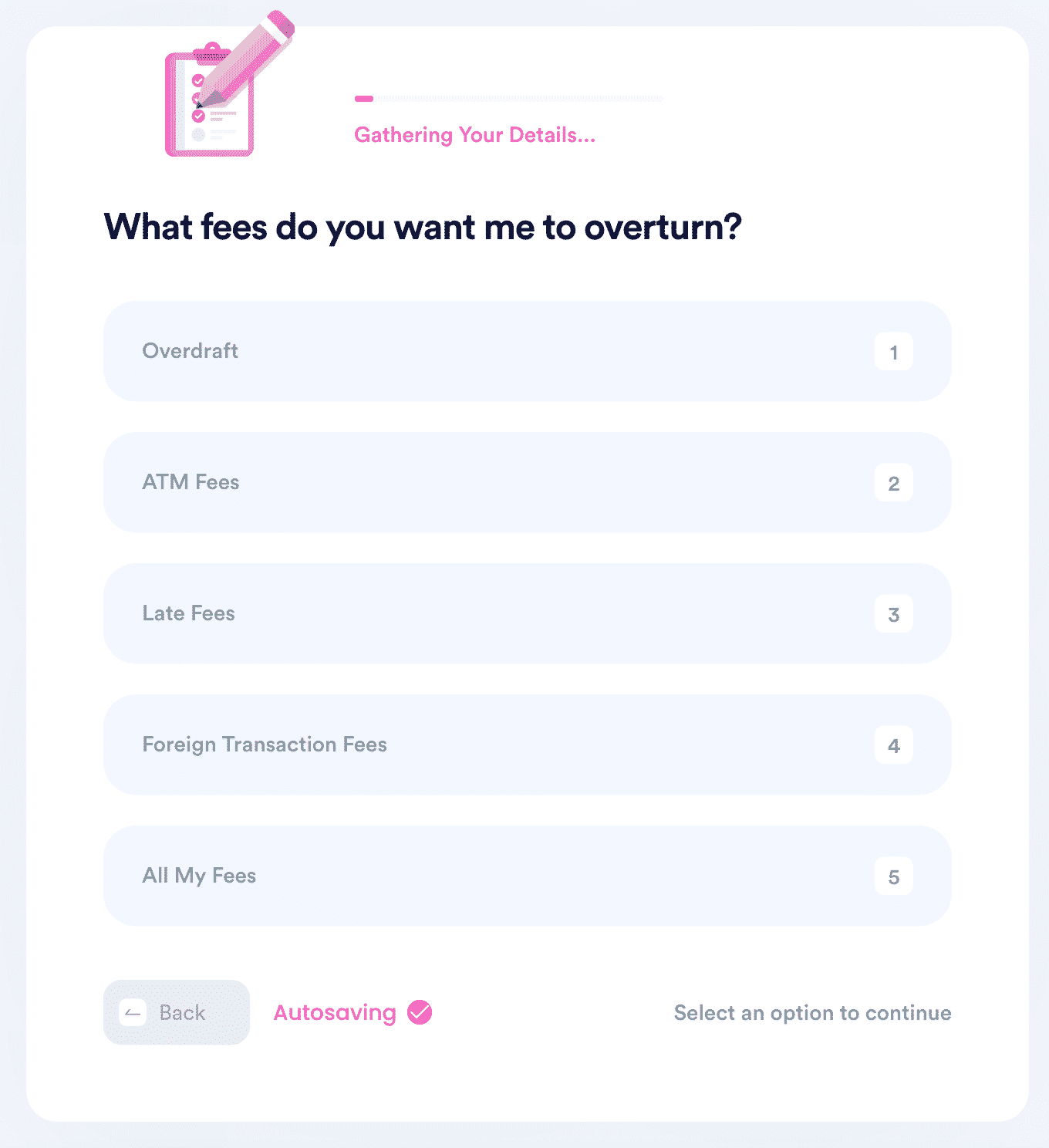How to Dispute Old National Bank Overdraft Fees in 4 Steps
Of all of the fees that a person could potentially have to pay, overdraft fees have to be some of the most irritating to deal with. The basic premise of an overdraft fee itself annoys many customers, and it is irritating to have to fork over extra money when you are already scrambling to stay above water as it is. Today, we will look at what these fees are, how you can get them reversed on your own, and why you may want to use the helping hand of DoNotPay to do the work for you instead.
What Is an Overdraft Fee?
An overdraft fee is a fee that you generally agree to take on in the event that your bank account becomes overdrawn at some point. will make the argument that overdraft fees are useful because:
|
|
|
All of this may sound fine and good, but the reality is that the banks love overdraft fees because they generate so much revenue for the bank itself. They might talk a good game about how these fees are meant to protect customers from being embarrassed, but the hard truth is that it has a lot more to do with protecting the bottom line of the bank itself than it does with anything related to the customer. If you want to avoid these fees (and who wouldn't?), then you need to know what these fees are, how they hit your account, and what you can do to counteract them.
How Much Does an Overdraft Fee Cost?
It is highly frustrating to many bank customers to learn that they may have to pay an additional $37 on top of the purchases that they have made because they were overdrawn when they made a given purchase. In other words, think of it like this:
- Your bank account has a total of $110.57
- Your grocery bill is: $115.22
- The transaction goes through even though you don't have enough to cover it
- Your balance is now: -$4.65
- You are then charged an overdraft fee of $37
- Your balance is now: -$41.65
It gets worse than that, though, because you can be charged $37 per overdraft item. So, if you have additional charges come through on your account before you are able to get more money into that account, then you can be charged for those with a $37 fee on top of each one! The banks take in a lot of money charging fees like this, but their customers can end up seriously overdrawn on their accounts in no time flat.
Can You Fight These Fees On Your Own?
It is possible to fight bank fees on your own if you would like to take a stab at it. Many people call directly and attempt to get the bank to take those fees off for them. They explain why they made an error and charged more than they intended to on their card. It often comes down to if the bank representative that you happen to get is sympathetic to your case or not. Sometimes they will reverse those fees for you, but other times they may not. Instead of rolling the dice, you might want to use DoNotPay for better results.
DoNotPay works for all kinds of bank charges and unwanted fees. You can use it to tackle:
- B of A fees
- Chase fees
- Overdraft fees on weekends
- TD bank fees
- ATM fees
- PayPal transfer fees
- Fifth Third bank fees
- Citizens bank fees
- And Wells Fargo fees
Get Results With DoNotPay
If you want to get overdraft fees waived with DoNotPay but don't know where to start, DoNotPay has you covered in 4 easy steps:
- Open the DoNotPay Fight Bank Fees product.

- Enter the name of your bank.

- Verify the last 4 digits of your bank account.

- Choose which fees you want to waive, including overdraft, ATM, and transaction fees.

What Kind of Savings Can You See?
Believe it or not, there is a lot of money to be saved when you fight bank fees like overdraft fees. You might think that an overdraft is an expensive one-time mistake for yourself, and perhaps that is the case, but you don't want to lull yourself into the belief that it will always play out this way. The truth is, overdraft fees made up approximately $30 billion in revenue for the big banks in 2020! This means that there are a lot of people who have charged multiple overdraft fees to their accounts. To avoid doing this always:
- Check your balance before making a purchase
- Be aware of any outstanding transactions that you might need to think about
- Keep enough money in your account to cushion against unexpected expenses
- Turn off overdraft protection
You have the power to tell the banks that you don't even want overdraft protection on your account. If you turn it off and try to overspend, your transaction will simply be denied. That said, this could be a wiser choice to make than to be charged the fees on your card. It is completely up to you, but many have made the decision to avoid overdrafts altogether by turning this feature off.
 By
By